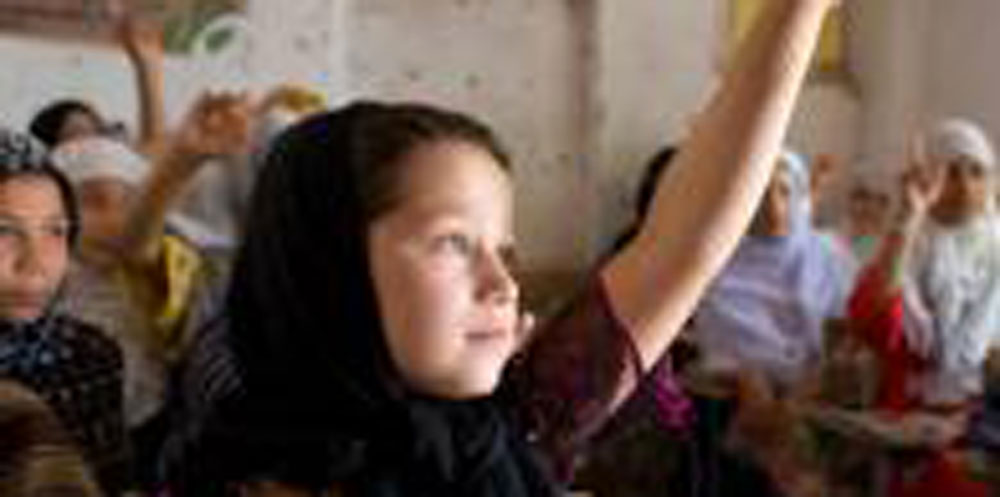
About the Project
This project is one of the 2010 WISE Awards winners.
In 2006, concerned about the appallingly low number of children in school in conflict-affected and fragile states and recognizing that measures to increase enrolment were having little impact in those countries, Save the Children launched Rewrite the Future, a major global campaign to get three million of these children into school and improve the quality of education for a total of eight million. In addition to working directly in over 20 countries, Save the Children lobbied governments, donors and international agencies to recognize the crucial role education plays in protecting these children and to take special measures to increase educational resources for them.
Context and Issue
Children caught up in armed conflict or natural disasters say that what they want most – alongside medicine, food and shelter – is to go back to school. Education is a lifeline for children in emergencies, helping them to stay safe, recover from their experiences and build a positive future. War, conflict and natural disasters can deprive whole generations of access to education, leaving vast gaps in the education of millions of children and increasing their vulnerability to violence, abuse and exploitation. Education not only provides immediate life-saving physical protection, but also a safe space for children to receive psycho-social support, share their experiences and regain a sense of normalcy, routine and hope in the future.
It is important to provide access to quality education for children caught up in humanitarian crises because:
- Education is critical to children’s protection in crisis situations. During emergencies, children and their families face the disruption of normal support mechanisms and dangerous, rapidly changing situations. In such an environment, education can be protective, life-saving and life-sustaining.
- Education is a right for all children, including those affected by conflict and natural disaster.
- Uninterrupted education is critical to children’s future development as well as ensuring that they are able to contribute to the economic prosperity and reconstruction of their country.
- Communities prioritize education in emergencies.
The Solution and Impact
Education often remains far down the list of priorities for the humanitarian community and is often neglected on the basis that more traditional life-saving assistance should be prioritized, such as food and water, shelter and medical care. However, in line with the innovative model of the project, providing education in emergency settings is about being more accountable to affected communities.
The innovation that is at the center of the project model is based on Save the Children’s Theory of Change, consisting of the following four elements:
- Ensuring children’s voices are heard,
- Innovating evidence-based replicable solutions,
- Working in partnership with other organizations,
- Ensuring sustainable impact at scale
In terms of the overall impact of the project, education is now an important feature of the humanitarian response by Save the Children. Save the Children’s program work has succeeded in getting 1.4 million children into school. The quality of education for more than 10 million children has also improved through teacher training and by working with teachers and education ministries, for example, to introduce codes of conduct banning corporal punishment and other harmful practices.
Future Developments
The next developments and future objectives of the project include:
- Ensuring greater provision of timely, appropriate, quality education programs in all emergency responses based on best practices and strong evidence and research.
- Providing early-childhood care and development support to children through our humanitarian response programs.
- Strengthening our technical capacity to provide education support in emergency situations and humanitarian responses.
- Successfully leading the Education Cluster in 20 countries.
- Advocating for the delivery of the promises of the Education Cannot Wait campaign to double education’s share of humanitarian aid from all sources. Ensure that education is included as an essential part of all humanitarian responses.


